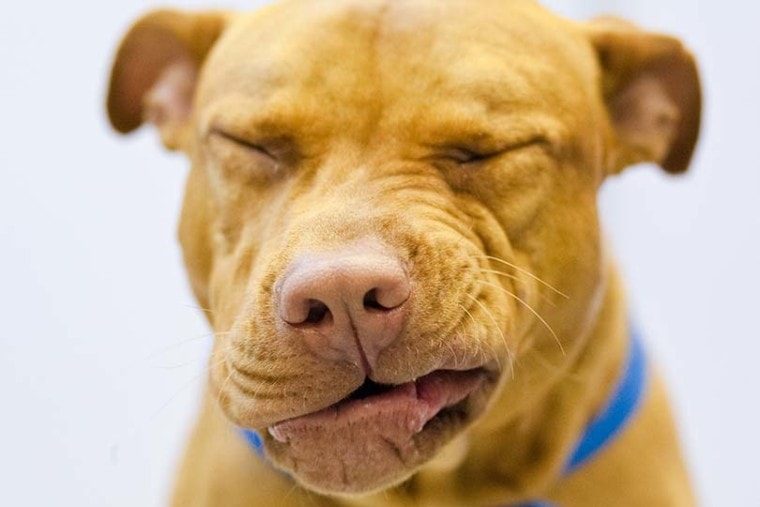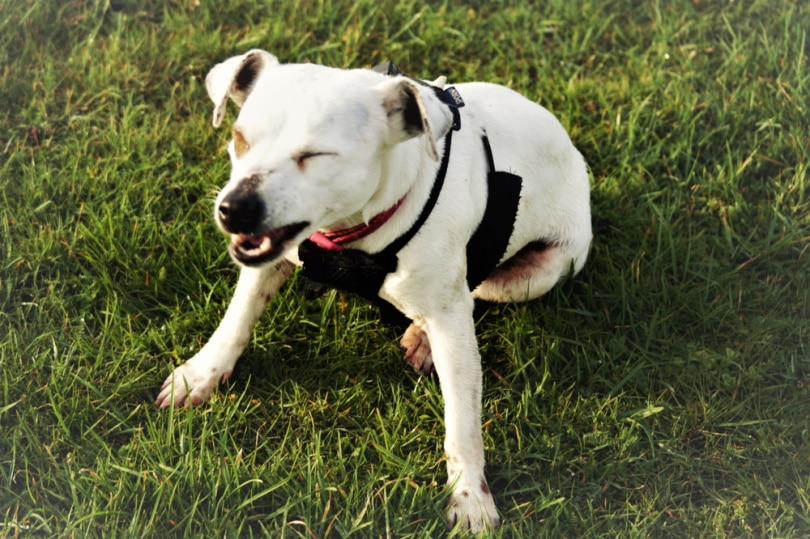
While occasional sneezing is considered normal behavior in dogs, in general, any behavior that is done repeatedly is an indication that something more is going on. There are many reasons why a dog might be sneezing so much, and while some of them are not very serious concerns, others may represent serious health conditions. We will go through the most common reasons for your dog’s sneeze attacks and provide you with some information to help you properly care for your dog.
What Is Sneezing?
Sneezing is a defense mechanism of the body. It’s a powerful and sudden expulsion of air from the nose and mouth, done in an effort to expel an irritation, like dust or other particles, out of the lining of the nasal cavity.

The 7 Most Common Causes of Sneezing in Dogs
1. Airborne Irritants
Some substances that pollute the air in your pet’s environment can irritate their nose and cause sneezing. Air diffusers, scented candles, perfumes, dust, cooking with chiles and other spices, pesticides, and fertilizers all can be the cause.
2. Allergies
Allergies develop when your dog has become hypertensive to a certain protein that can incite an allergic reaction. Seasonal allergies tend to be caused by pollen present in the environment during a certain time of the year. Other environmental allergies can be caused by mold, dust, and dandruff, which can be present year-round.
In addition, food can also be causing an allergic reaction. Although food allergies usually present as skin or gastrointestinal signs, in some rare cases they can cause sneezing. Allergies require some investigation and the management varies depending on the cause.

3. Infection
Nasal and respiratory infections caused by bacteria, viruses, or fungus can all be the cause of constant sneezing in your dog. In some cases, infections of a tooth can also drain into the nasal cavity. Some infections are more serious than others, and some are also more contagious.
4. Nasal Mites
Nasal mites are small parasites that get into a dog’s nasal passage while they are digging or playing in the dirt. Nasal mites are parasites of the species Pneumonyssoides caninum or Pneumonyssus caninum and are found all over the world.

5. Nasal Tumors
Especially in older dogs, nasal tumors can be the cause of sneezing. Nasal tumors are small masses growing and developing in the nasal passage.
6. Breed
Brachycephalic or flat-faced dog breeds such as Bulldogs, Pugs, and Boston Terriers are more prone to sneezing and other respiratory issues due to the anatomy of their nasal passage.
7. Dog Communication
In some cases, sneezing is also part of the dog’s social behavioral repertoire. A dog can sneeze when it is playing, signaling excitement or happiness. Sneezing has also been observed as a behavior entailing submission to other dogs or humans.
Final Thoughts
The occasional sneeze in your dog is normal behavior; it’s a natural defense mechanism of the respiratory system and, in some cases, it is also part of the dog’s social behavior. However, if your dog is sneezing too much, it is usually due to an underlying cause. If you suspect the sneezing is caused by an irritant, try removing the irritant or dog from the area. If the dog continues sneezing a lot, it is best to take him for a veterinarian consultation to find the cause of his signs and give appropriate treatment to help your dog (and you) breathe in peace.
Featured Image Credit: memorable9, Pixabay









